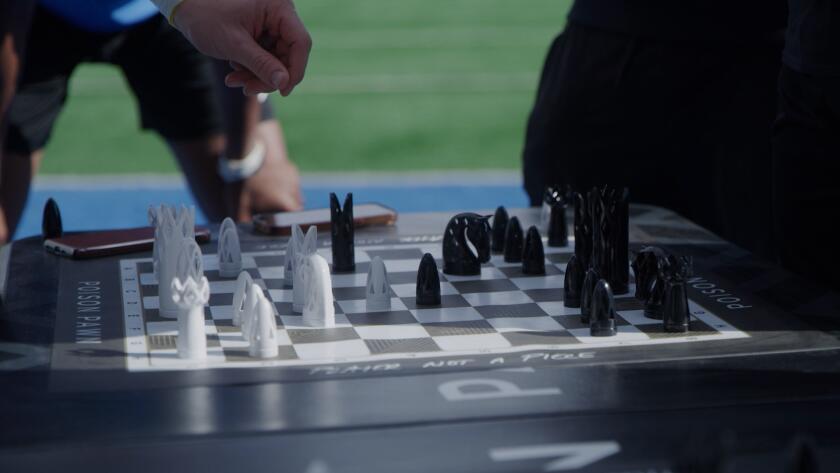
- Share via
Philadelphia quarterback Jalen Hurts has won each of his last five regular-season starts in which the Eagles have faced a double-digit deficit.
Houston’s C.J. Stroud has the third-most passing attempts (151) by a rookie without an interception to start his career.
Despite not taking a snap for Arizona in the preseason, the Cardinals’ Joshua Dobbs has completed nearly 71% of his passes in the last three games, with four touchdowns and zero picks.
Some play checkers. These guys play chess.
No one understands that better than Los Angeles-based performance coach Seth Makowsky, who has worked with all three quarterbacks at various points in their football careers, harnessing the game of chess to teach poise under pressure, quick decision making and how to avoid turning one mistake into a string of them.
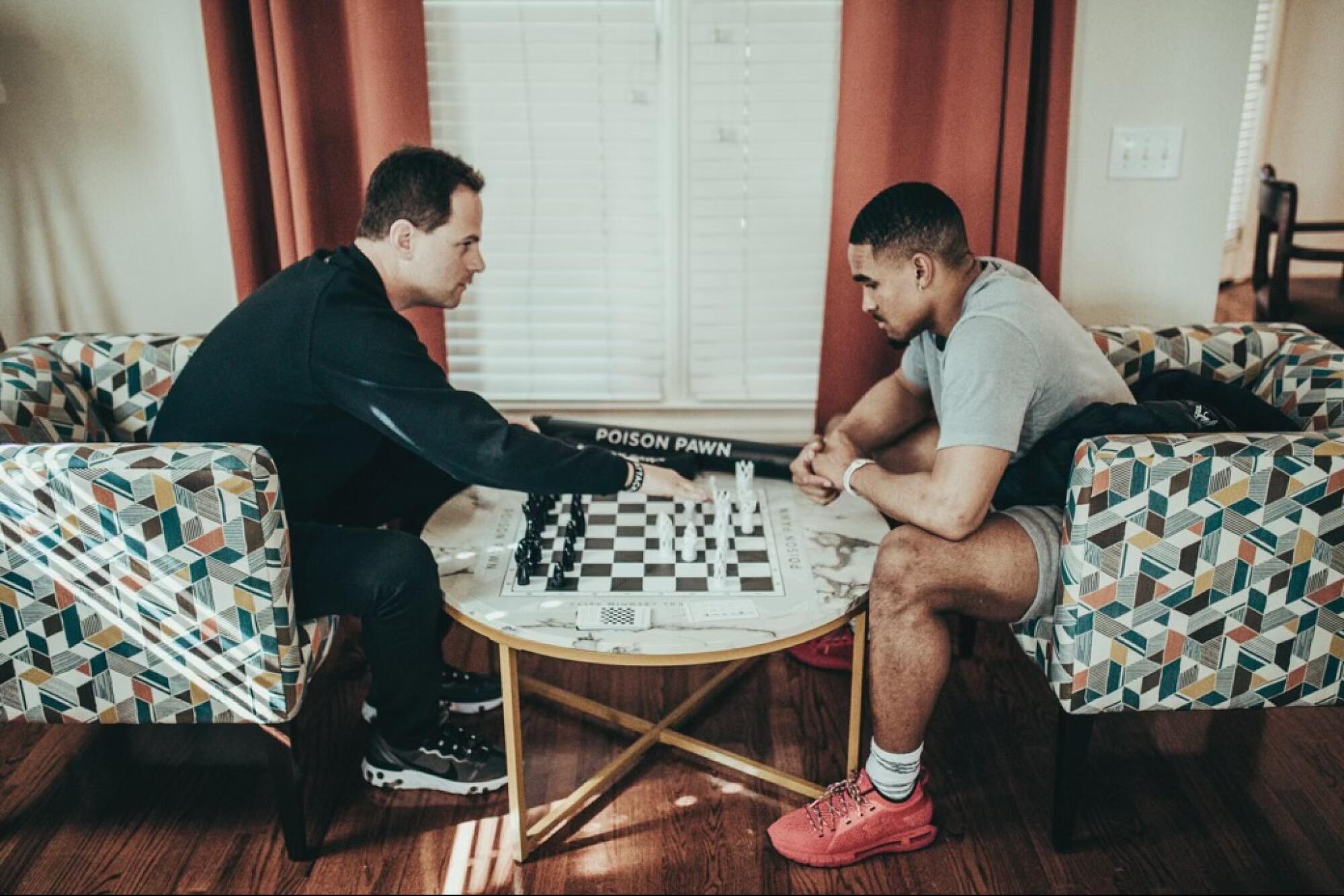
“There’s ancient wisdom in this game that’s been around for thousands of years,” said Makowsky, 47, who with his wife co-founded Poison Pawn, which he describes as a mind-set training system that uses chess to achieve peak performance in every aspect of life.
“So we’re able to kind of distill that and use the game as a vehicle for really imparting a lot of these lessons and concepts, and give them tools to navigate the good times and bad times.”
Makowsky is more a chess enthusiast than master, and he isn’t looking to turn anyone into a coffeehouse champion. Instead, the game teaches larger life and behavioral strategies.
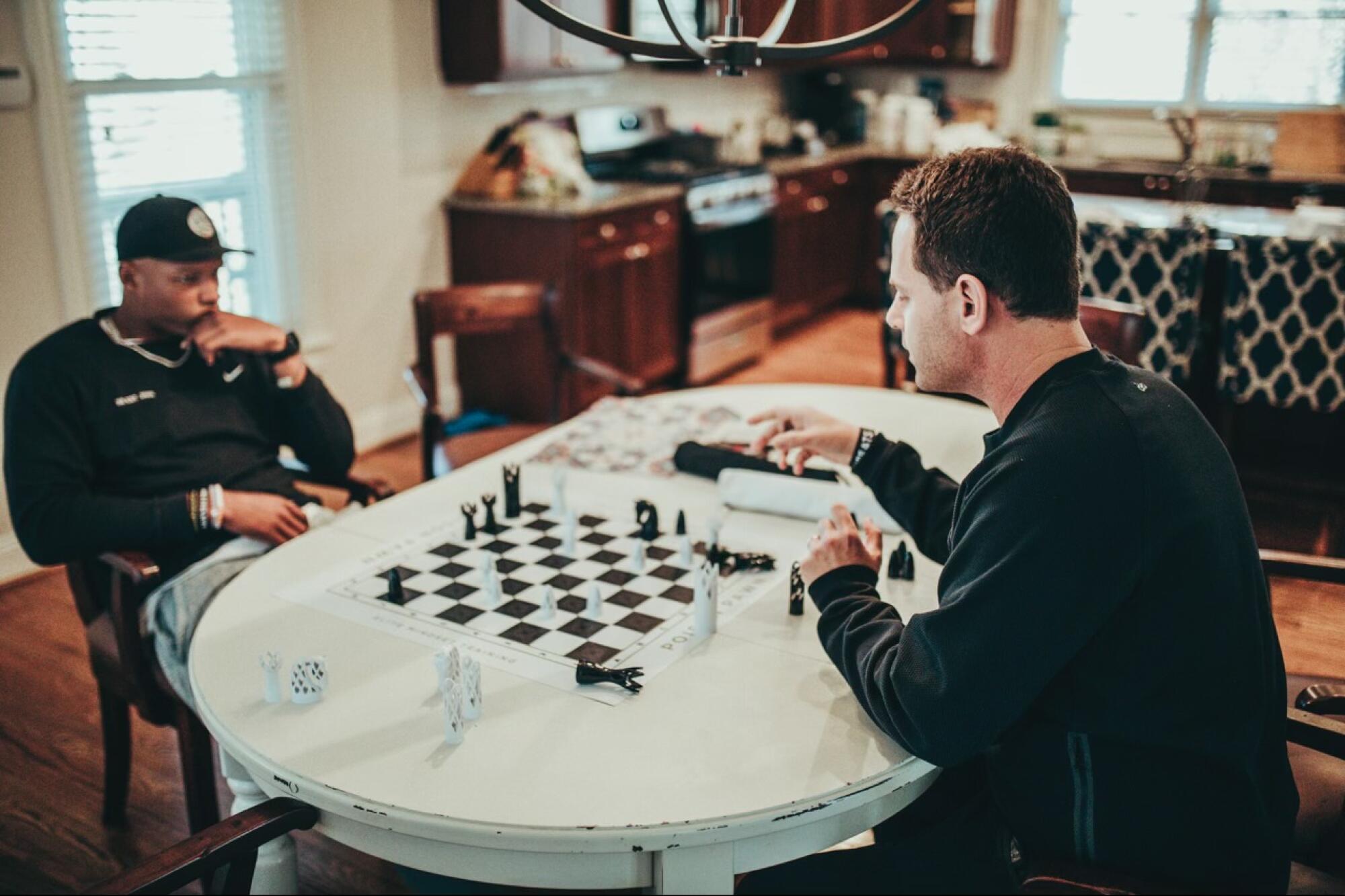
“It’s about having a mental process with everything you do,” said Dobbs, who has worked with Makowsky for the last two years. “Especially being a quarterback, when you attack the line of scrimmage, you have to know what you’re doing each and every play. …
“We’ve been able to simulate a lot of those situations on the chessboard in terms of where your threats are, where you’re attacking, and how to make the best move given the amount of time that you have.”
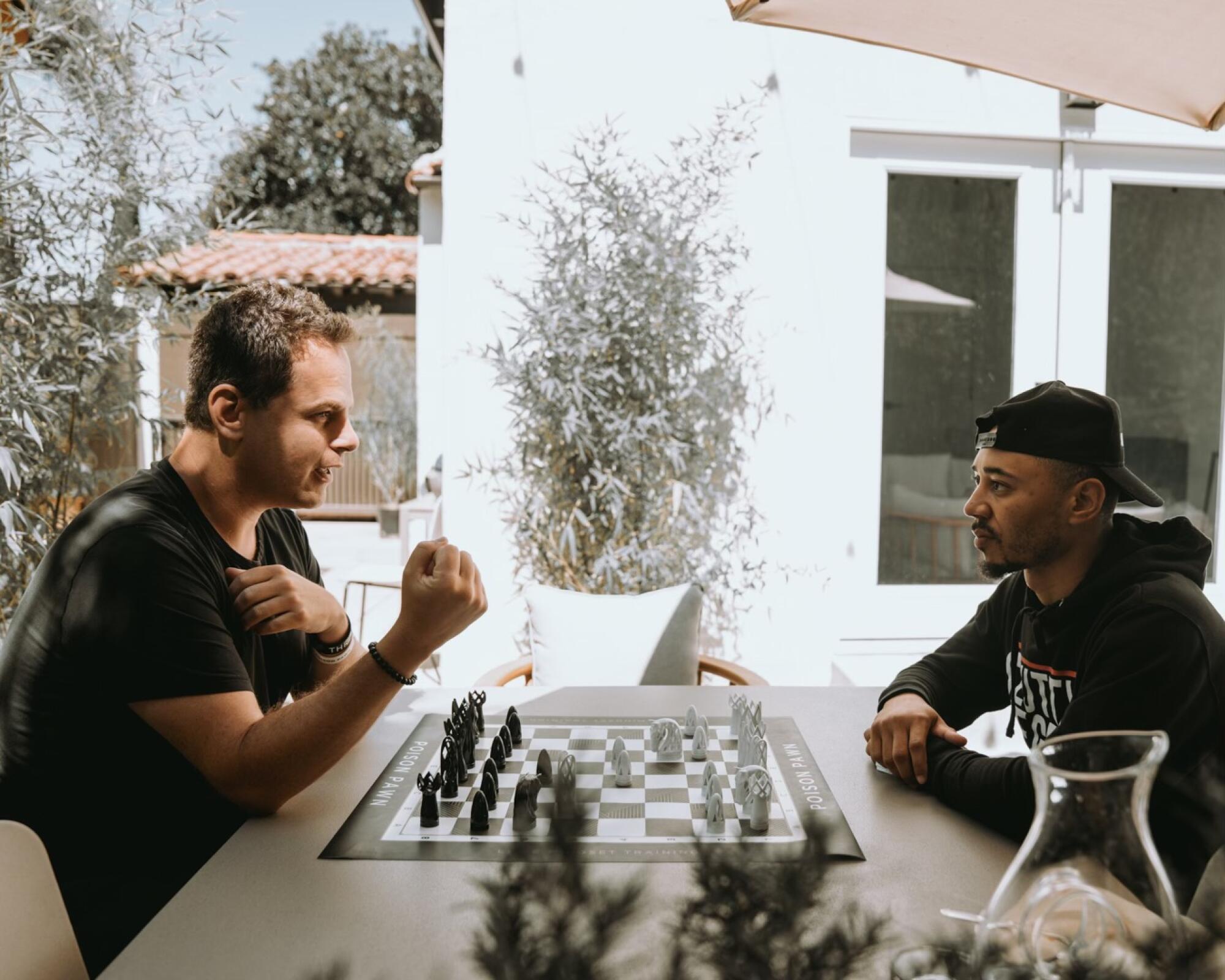
NFL quarterbacks aren’t the only ones. Makowsky counts among his clients Dodgers star Mookie Betts, as well UCLA’s football and volleyball teams, the USA artistic swimming team, actor Cameron Diaz and multiple corporate executives, all looking to be at their best and/or gain an edge on the competition.
Along with his wife, Rebecca, Makowsky redesigned the antiquated look of traditional chess pieces to make them more streamlined, modern and appealing to a new generation of players. Whereas traditional pieces tend to be smooth and rounded like columns of a classic building, Makowsky’s version features futuristic, molded-plastic pieces with points, sharp angles and a diamond-shaped lattice design.
“We wanted the pieces to represent a break from the past and a new way of thinking,” he said.
Makowsky’s background is in business. After graduating from Emory University and starting his career at Coca-Cola, he would go on to lead several restaurant companies and advise organizations in industries ranging from airports to airlines to casinos and hotels to private equity firms.
He made the connection from his interest in chess to his career.
Sam Farmer makes his picks and predictions for Week 5 of the 2023 NFL season, starting with the winless Chicago Bears taking on the Washington Commanders.
“The way I was learning and applying it was transforming the way I made decisions,” said Makowsky, who reached out to and studied chess masters from Russia, Italy, South America and elsewhere. “The deeper I went, the more I was making quicker decisions. If I made a mistake, I was able to move quickly beyond it, not letting one mess-up lead to other mess-ups, and have a process for making decisions.”
Makowsky isn’t a lifelong football fan. He could tell you a lot about Garry Kasparov, but next to nothing about Gary Kubiak. He had never watched a college football game until UCLA coach Chip Kelly brought him in to work with his players.
“Seth helped me a lot in terms of taking a step back and seeing the game in a big perspective,” said Rams safety Quentin Lake, who played for UCLA. “That’s kind of how you have to see chess. A big thing he talks about is forceful moves — what can I do to make a move that will set me up for something later? There’s a direct correlation to that in football.”
- Share via
Quarterback Dorian Thompson-Robinson attributes much of his growth as a player to the strategies he’s learned at a chessboard.
Makowsky uses all sorts of techniques to test his clients. Make a move in 10 seconds. Play with crowd noise blaring through a headset. Play between running actual plays on the practice field.
“In between reps, while they’re resting their body, I’m putting them in situations where they’ve got to assess threats and attacks,” he said. “It’s not traditional chess. Often they’ll be sweating. The whole goal is to dramatically improve performance.”
Sometimes the sessions are in person, other times they’re via video calls. Makowsky doesn’t have to shop his services; the clients come to him. His company’s slogan is “Player Not a Piece,” with the goal to be a player in your own game, not a piece in someone else’s.
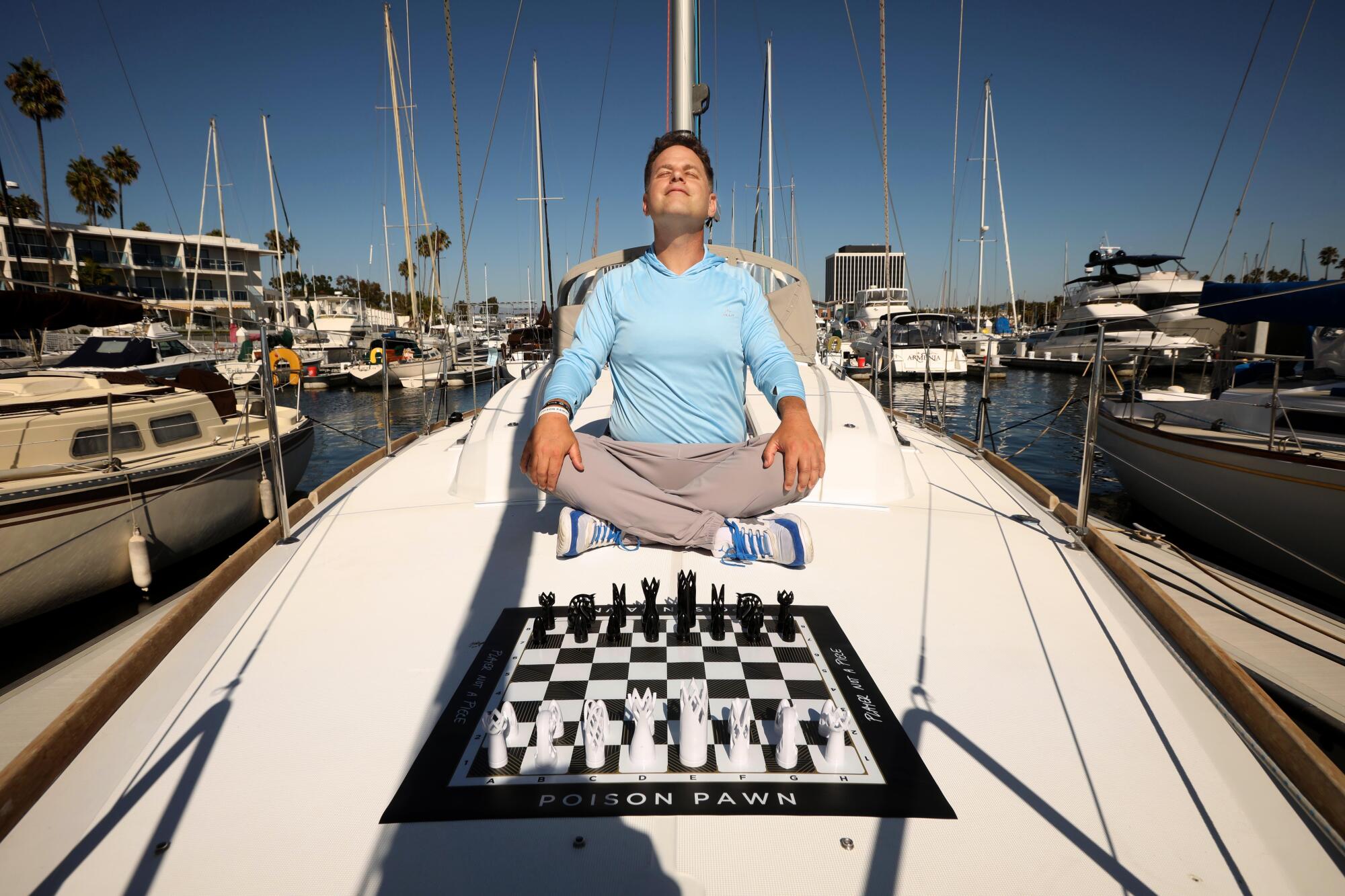
“I’m able to identify somebody’s personality type and gear the teaching accordingly,” Makowsky said. “For example, someone like Jalen Hurts. In his case, he wanted to be thrown into the fire right away. Other quarterbacks, they might first want to understand what’s going to happen, understand every element before they play.”
Hurts, whose undefeated Eagles play at the Rams on Sunday, worked with Makowsky earlier in his career but declined to discuss that for this story because, according to a team representative, “He keeps his offseason work under wraps.”
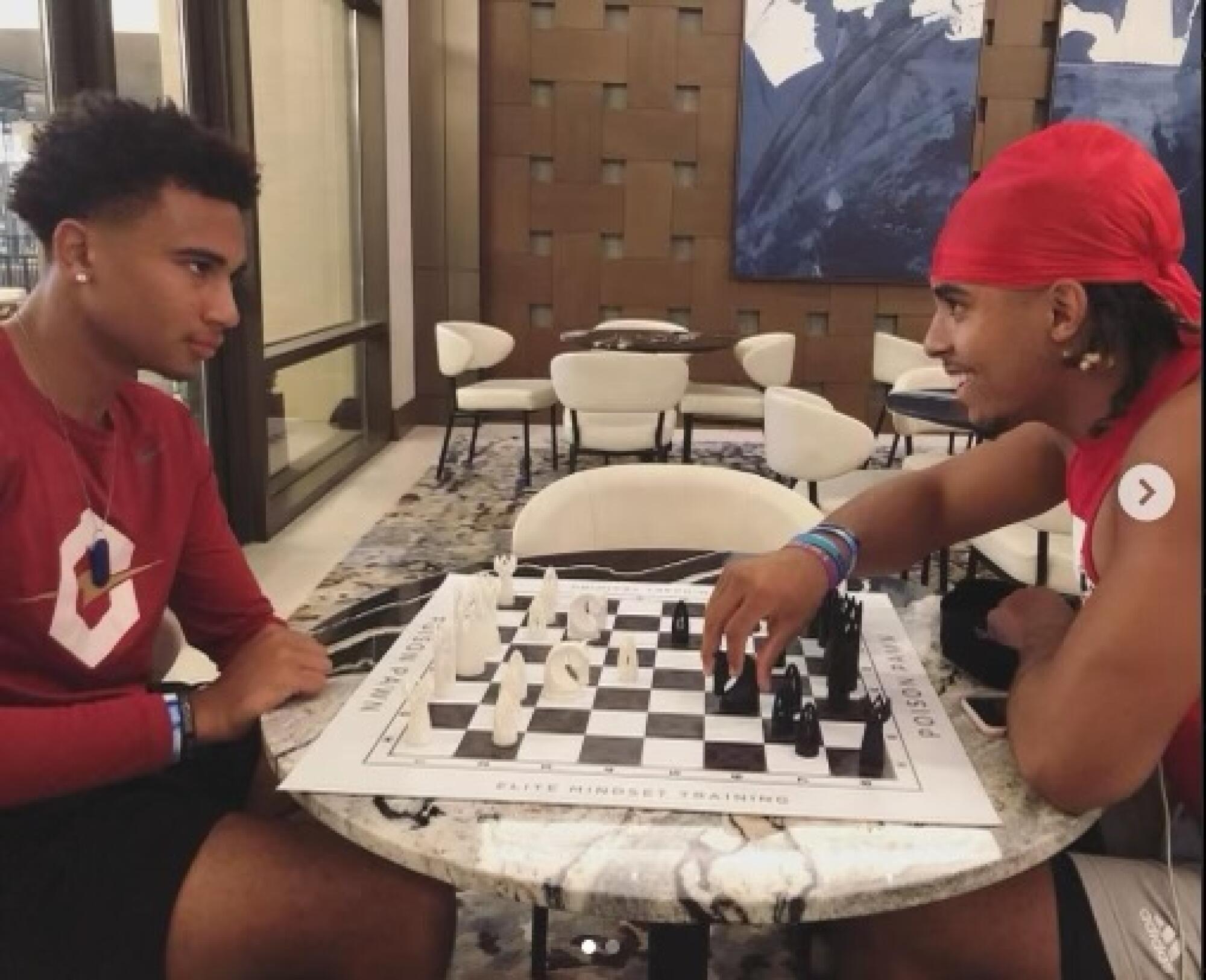
Stroud, the No. 2 overall pick last spring, began working with Makowsky in high school at the Elite 11 camp, where he rose from relative obscurity to edge more heralded quarterback recruits and win camp most valuable player honors.
Whereas some players at the camp knew how to play chess, Stroud never had been exposed to it. He took some teasing from them. That prompted the quarterback to ask Makowsky to train him, spending two hours a night to learn the game.
“All of a sudden, he went from just seeing complexity to seeing a process and executing it,” Makowsky said. “Bucky Brooks, his coach, was watching too and said there was a direct improvement on the field. C.J. was the one who showed up and wound up winning MVP.”
Just like that, from teammate to checkmate.
More to Read
Go beyond the scoreboard
Get the latest on L.A.'s teams in the daily Sports Report newsletter.
You may occasionally receive promotional content from the Los Angeles Times.


